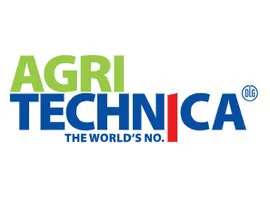Autonomous field work is no longer a distant prospect with robots increasingly finding their way into practical applications. However, further development work is needed before they can be used on a broader scale and fundamental safety issues still need to be clarified - Agritechnica, 12-18 November, 2023
Advanced developments in mobile machines have made it possible that autonomous machines will be cultivating arable land on a large scale and indeed, the transition to driverless field robots has already begun. Autonomous systems offer great opportunities for agriculture and can provide useful support for farms in their daily work.
developments in mobile machines have made it possible that autonomous machines will be cultivating arable land on a large scale and indeed, the transition to driverless field robots has already begun. Autonomous systems offer great opportunities for agriculture and can provide useful support for farms in their daily work.
From sowing and crop protection to harvesting and tillage, autonomous robots can contribute significantly to field work, support the conservation of both natural resources and soil. By performing labor-intensive tasks such as weeding, field robots can also help address labor shortages and, thanks to scalable technology, the autonomous systems of the future will also be a viable prospect for smaller farms.
All major agricultural machinery manufacturers, as well as startups and smaller companies, are currently working on commercial field robots and on systems for the full or partial automation of field work. What can be expected from this technology? At Agritechnica 2023, 12-18 November, Hanover, Germany, numerous companies will be presenting their solutions and providing answers to important questions from farm managers.
Autonomous or fully automated
Autonomy in agricultural machinery can be fundamental to the design, such as field robots or, alternatively, existing tractors, harvesters and implements can be modified. There is as yet no generally accepted definition of what distinguishes an autonomous system from a fully automated one. However, the automation of existing implements, such as fertilizer spreaders or crop protection sprayers, provides the foundation for autonomy.
Autonomous tractors and implements could replace today's "non-intelligent" tractor-implement combinations in the not too distant future. A transition from automated to autonomous systems is already taking place, in which innovative sensor and robotics technologies, but not necessarily complete systems, can support farm work.
Autonomous technology in the real world
Autonomous field robots for cultivation and maintenance already perform farming tasks such as sowing and mechanical weed control, either as single-function robots or as part of a system solution. In many cases, field robots still cannot compete with standard technology in terms of performance and robustness but their advantage lies in the considerable potential savings due to round-the-clock working. Driverless vehicles can be used individually or in swarms.
Sensor technology plays a crucial role in the further development of modern robots. Passive and active sensors with many different operating principles have an enormous potential range of application, especially when different sensors are used in combination. This is known as sensor fusion.
For more information: agritechnica.com
